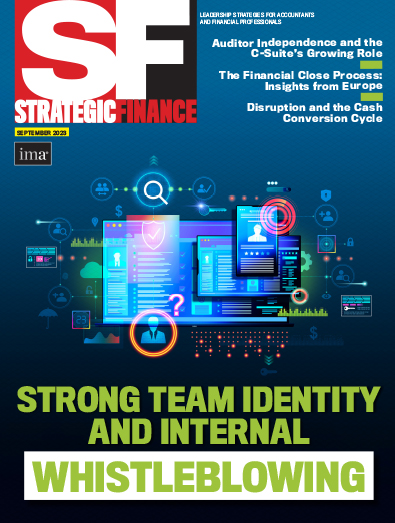Ethics is a very important subject in accounting and finance education. Students should be exposed to accounting ethics issues regularly from an early stage, but cultivating ethical reasoning skills in students can be challenging. The following strategies can be particularly helpful and effective.
1. When teaching accounting ethics or auditing classes, assign students to share a weekly story, news article, or case study about an accounting ethics dilemma or an instance of fraud that they can find from sources such as news coverage from a website or TV program, documentaries, The Wall Street Journal, The Financial Times, or a local newspaper. This approach helps students connect with real-life business cases, fostering motivation and engagement in the development of awareness and ethical reasoning skills.
2. Integrate accounting ethics questions into class projects whenever possible, even in technical accounting subjects, such as financial, managerial, and tax accounting. By demonstrating the connection between accounting theories, quantitative methods, and ethical considerations in practical scenarios, students gain a deeper understanding of how ethics is intertwined with their technical knowledge in a practical way.
3. Adopt open-ended questions or role-play simulations in accounting ethics topics. Open-ended questions allow students to explore ethical considerations from different perspectives through discussions and conversations. Role-play simulations engage students in applying ethical reasoning skills in realistic scenarios.
4. Evaluate the effectiveness and efficiency of professors’ teaching strategies. Pre- and post-assessments of student skill development in ethical reasoning can provide valuable insights for faculty members teaching ethics. Using pre- and post-assessments is of great importance for faculty to identify the methods, student engagement techniques, and instructional materials that have the most impact on student knowledge and skill development in ethics subjects.
Inside and outside of class, engagement is essential to cultivate a learning environment where students retain key ethics skills and information. Storytelling is an art form used in various disciplines that’s praised for increasing student performance and retention. Frequently, this is seamless with the integration of case studies with ethical components into the classroom. Case studies that tell stories and discuss real-world scandals offer an opportunity for students to examine and explore accounting and finance issues as they see them relayed with a business segment or industry vertical familiar to many students. This helps to take relevant topics and key concepts discussed in class beyond any given textbook with application to real-world business environments.
Professors always let students know that accounting/finance is the language of business. While it might be viewed as a foreign language initially, using real-world case studies incorporates a valuable application of ethical principles and standards that’s relatable and helpful as students enhance their critical-thinking skills in preparation for future business situations and finance function processes.
Connecting Academia to Practitioners
Real-world case studies are a phenomenal tool that connects the dots between what’s being discussed, researched, and debated within academia and what’s happening in the private sector of the business world. The case study model offers students an opportunity to develop their analytical skills while enhancing their writing skills through the use of a real-world business setting as a prompt for ethical analysis. This type of classroom activity or homework assignment has the potential to improve students’ communication skills while working in a team environment.
In addition to real-world case studies, “accounting and finance in the news” links are now being incorporated by many textbook authors and publishers in their support materials. This model offers the ability to discuss different news articles in class, which many students find compelling. In our classes, we incorporate an “accounting in the news” assignment where each student selects a recent article related to a concept covered in class, which often ties into ethics. Their classmates can comment on the discussion board, which becomes another chance to connect the dots between what’s discussed in the textbook and what’s happening in the profession. This helps to engage students through conversations on topics such as professional ethics within the classroom and create a sense of community.
Overcoming Teaching Challenges
There are several typical challenges in teaching ethics. Students in any class bring with them a wealth of diverse backgrounds, life experiences, and interests, which is highly valued by professors. On the other hand, the development of students’ values can vary greatly across a wide spectrum of cultures and backgrounds, which brings a challenge to achieving learning objectives. One way for professors to overcome it is by using various cases and scenarios that involve ethical issues in instruction. That can create a dynamic learning environment that resonates with students’ diverse perspectives. To maximize the effectiveness of these cases, professors may facilitate discussions and provide guidance throughout the learning process. Rather than focusing on standard answers, the goal is to promote critical thinking and encourage empathy and understanding when studying examples of real-world ethical dilemmas.
Another common challenge in teaching ethics is that students may feel uncomfortable or unsafe expressing their opinions when participating in discussions, particularly on topics or cases involving ethical controversies. To overcome this, professors can first focus on the establishment of trusting relationships with their students. Hence, professors may create a supportive and collaborative environment where students feel supported and valued, which in turn encourages their active engagement in classroom discussions. Additionally, professors should work with students to create a judgment-free safe zone, allowing everyone to freely express their opinions without fear of criticism or belittlement, which fosters open dialogue. Faculty members must ensure that students’ diverse perspectives are respected and their freedom of speech is protected.
Accounting professors may not necessarily come from a philosophy background and may not possess comprehensive knowledge of ethics. It can be challenging to facilitate discussions on ethics-related issues due to the diverse range of questions and perspectives. A way to overcome this is by always being well-prepared for discussions of ethics and anticipating potential questions. Acknowledge in class that you strive to provide guidance and answers, but there may be certain questions for which you don’t have immediate solutions. Assure students that you’ll follow up with additional information later; you can even occasionally invite philosophy experts and practitioners whose ethics knowledge and skills complement yours to present to your classes as guest speakers. Offering alternative viewpoints, insights, and experiences will likely enrich and broaden students’ understanding of ethics.
Further Academic Research Potential
The areas related to ethics that remain ripe for further academic research include pressure to manipulate figures, sins of omission, information security, confidentiality issues, and whistleblowing. While this isn’t an exhaustive list, it’s broad enough to capture key topics that continue to plague the accounting and finance profession.
Accountants are considered trusted advisors within the business community, and we’re expected to approach each interaction and situation professionally with honesty, integrity, competency, independence, and objectivity. While these hallmarks of the accounting and finance profession remain the same, it’s vital that we teach students about various ethical challenges.

September 2023



